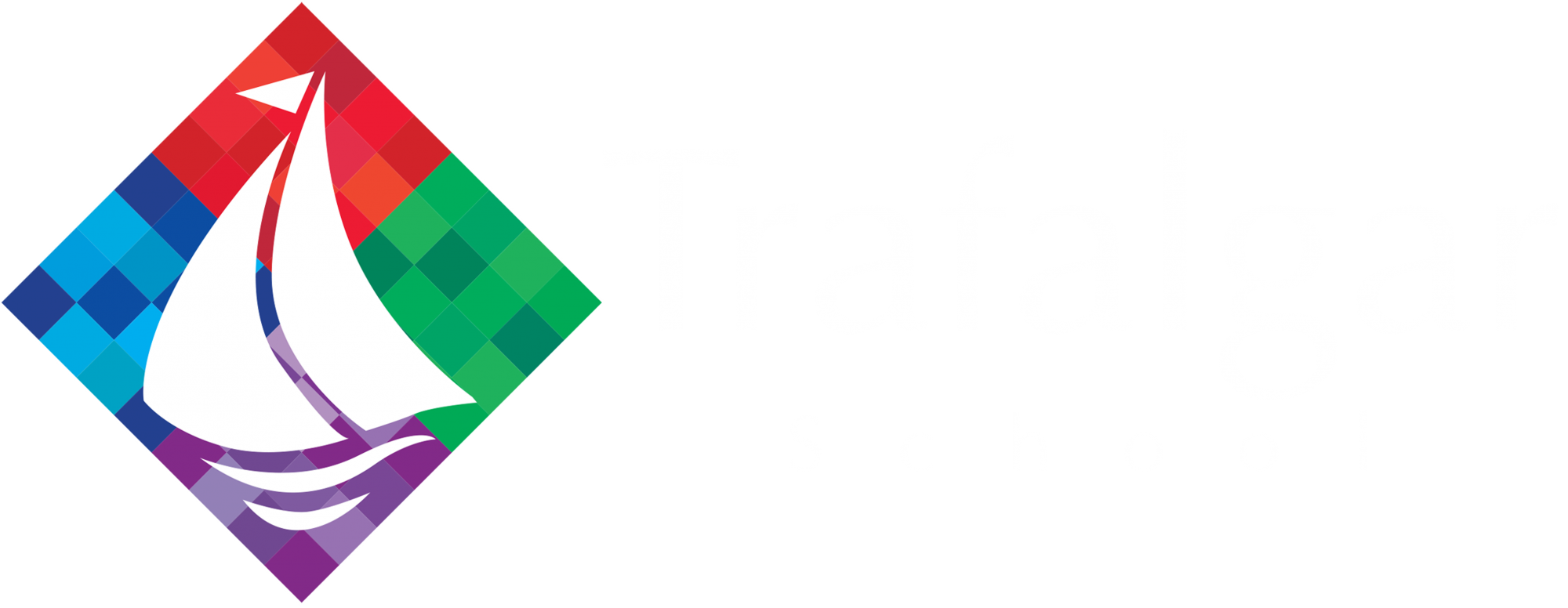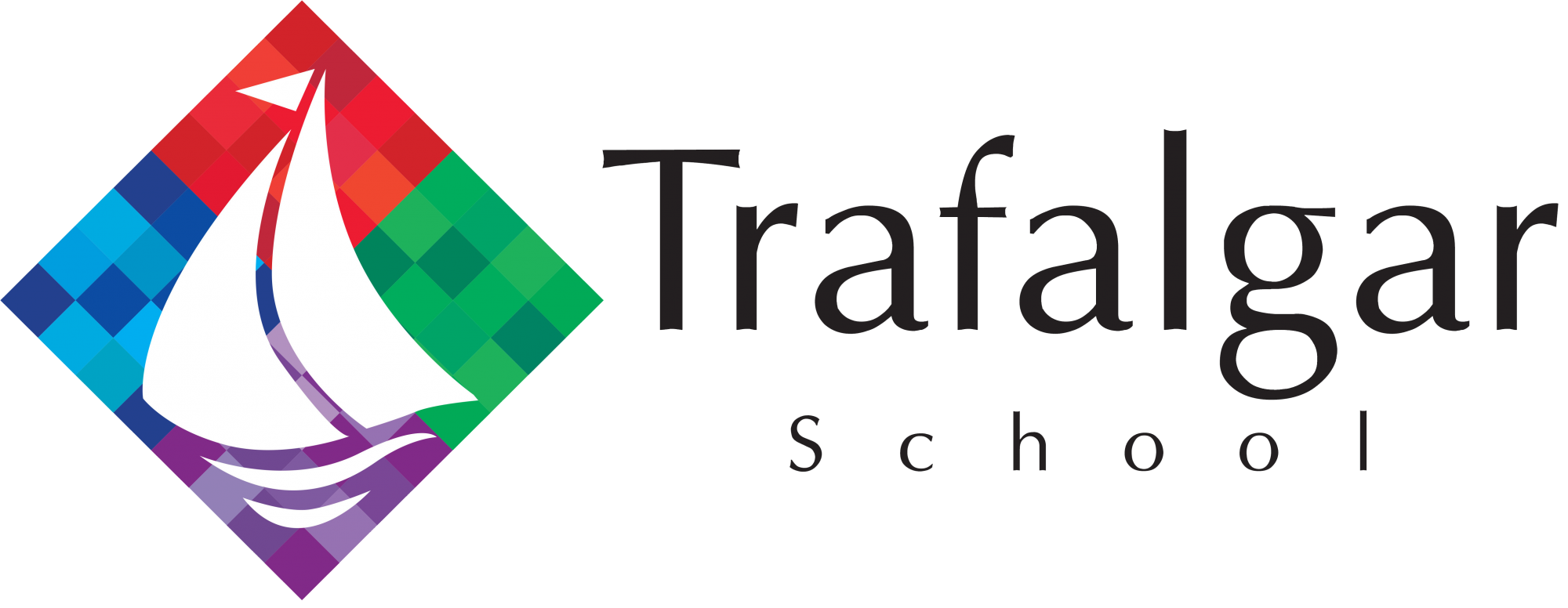Spanish
“A language is not just words. It’s a culture, a tradition, a unification of a community, a whole history that creates what a community is.” - Noam Chomsky
At Trafalgar school, the language curriculum focuses on students' linguistic skills and developing an understanding of the social complexity of our world.
As a UNICEF rights respecting school, we believe that all language learners need to develop the skills and confidence to consider themselves as ‘World Citizens’ who belong in a multicultural, mutually respectful and interconnected world where freedom of thought and belief are key concepts. The study of a new language equips our students with life lasting skills that will enable them to broaden their horizons and aspirations. Our curriculum aims to foster students’ curiosity and deepen their understanding of the world.
Moreover, during their 5-year Trafalgar journey, students will be given the opportunity to express their ideas and thoughts in another language and to understand and respond to its speakers, both in speech and in writing. The use of IT is an essential part of our curriculum as it gives us access to a wide range of authentic and cultural resources. Technology also enables our students to be exposed to the target language outside of the classroom. This enables all students, regardless of ability or background, to achieve their full potential and develop their competence in the four skills (listening, reading, writing and speaking).
The following skills are embedded in our planning. Our objectives in the teaching align with the National Curriculum in that we aim to ensure all students:
- Understand and respond to spoken and written language from a variety of authentic sources
- Speak with increasing confidence, fluency and spontaneity, finding ways of communicating what they want to say, including through discussion and asking questions, and continually improving the accuracy of their pronunciation and intonation
- Can write at varying length, for different purposes and audiences, using the variety of grammatical structures that they have learnt
- Discover and develop an appreciation of a range of writing in the language studied.

Key Stage 3:
Students will be regularly assessed in our fours Assessment Objectives: Speaking, Reading, Listening and Writing.
|
|
Assessment Window |
Assessment Type / Topic |
|
Year 7 |
8th January - 19th January 2024
|
Landmark assessment - Speaking, Reading, Listening and Writing |
|
Year 8 |
25th September - 6th October 2023
|
Landmark assessment - Speaking, Reading, Listening and Writing |
|
Year 9 |
16th October - 3rd November 2023
|
Landmark assessment - Speaking, Reading, Listening and Writing |
Key Stage 4:
The GCSE curriculum is scaffolded in 2 years in order to cover the themes set by AQA specification:
- Theme 1: Identity and culture.
- Theme 2: Local, national, international and global areas of interest.
- Theme 3: Current and future study and employment.
https://www.aqa.org.uk/subjects/languages/gcse/spanish-8698
https://www.aqa.org.uk/subjects/languages/gcse/spanish-8698/specification-at-a-glance
|
|
Assessment Window |
Assessment Type / Topic |
|
Year 10 |
16th October - 3rd November 2023
|
Mock exams: Listening, reading, writing and speaking. |
|
Year 11 |
6th November - 17th November 2023
|
Mock Exam season |
It is within our scope that home learning plays a vital role in student’s learning. It gives them the opportunity to consolidate and practise their skills that have been taught in their language lessons. It is therefore essential that students spend a considerable amount of their home learning time. As a result of this, we would actively ensure that the extended work is meaningful and productive across all year groups. It is vital that all home learning is uploaded on Google Classroom as well as Class Charts
In order to extend their learning beyond, the main focus of home learning in MFL consists of the three required skills; reading, listening and writing. We should take into account the students' accessibility of their home learning as well as ensuring to manage the workload by consistently planning and marking accordingly.
Duration for Home Learning
|
Year Group |
Duration |
|
Year 7 and 8 |
30 minutes per week |
|
Year 9 |
30-60 minutes per week |
|
Year 10 and 11 |
60 mins per week |
Home learning in MFL will be on a platform known as Sentence builders. Students will be accessing their home learning on this platform where they will be practising their listening, reading and writing skills.
Students should also use Memrise.com at home on a regular basis to revise the vocabulary covered at school. Memrise is an app which supports students' understanding. Spending five minutes a day can have a significant impact on vocabulary acquisition.
 Welcome to MFL at Trafalgar School!
Welcome to MFL at Trafalgar School!
I am proud to be the Lead Practitioner for MFL working with a fantastic team of language specialists who deliver the absolute best French & Spanish curriculum for our students. Our team is passionate about teaching languages and committed to bring real life experiences to our classrooms.
Our main aim is to build on reading and listening skills, focusing on using different tenses, encouraging students to question and the ability to understand and to share the feelings of another. While making links to other subjects, we teach strategies over time for structured writing. We firmly believe studying a language at GCSE will give students an edge when applying to study a wide range of degree courses at university and prepare them well for the global job market.
Aamir Kohli (Director of MFL) akohli.trafalgar@salterns.org
Selma Rahmouni (Lead Practitioner - MFL) srahmouni.trafalgar@salterns.org
Charlotte Argyle cargyle.trafalgar@salterns.org
Nima Abdul (Head of Spanish) nabdul.trafalgar@salterns.org
Neil Ball (Head of French) nball.trafalgar@salterns.org
Jose Gongora jgongoraoliva.trafalgar@salterns.org
Pietro Iuvara piuvara.trafalgar@salterns.org

